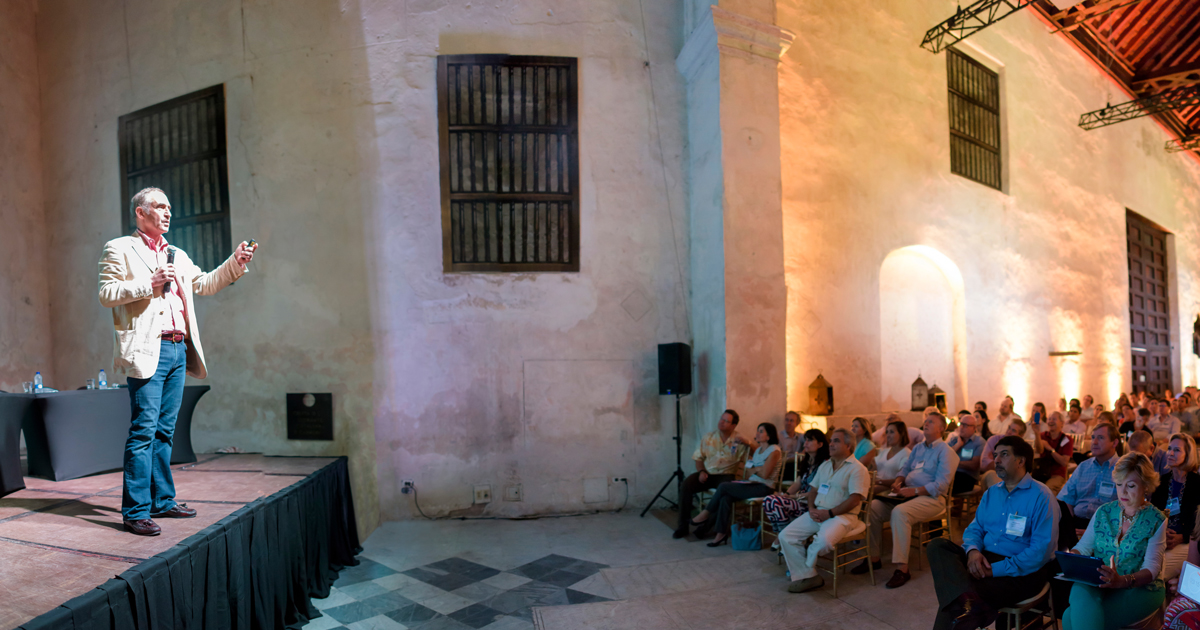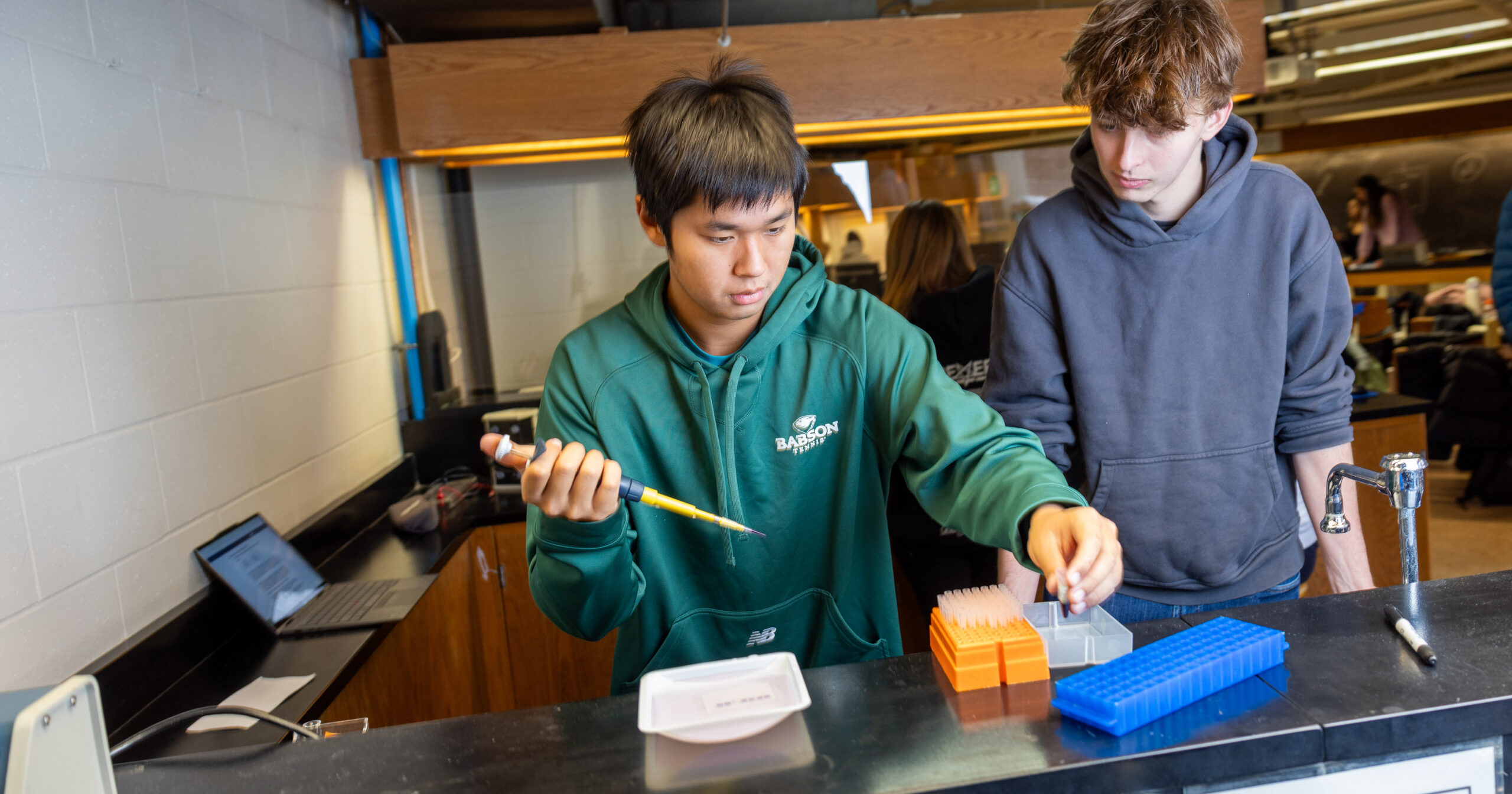The Key to Economic Growth? Local Entrepreneurship

Can entrepreneurship save economies?
The answer is yes, says Daniel Isenberg. In fact, fostering entrepreneurship has helped stimulate economic development around the world. It starts with how you define it.
“When talking about the impact of entrepreneurship on economies you must define entrepreneurship as the rapid growth of local firms,” said Isenberg. “When you use this definition entrepreneurship creates unique opportunities for broad-based prosperity.”
As the founding executive director of the Babson Entrepreneurship Ecosystem Platform and director of Manizales-Más and Scale Up Milwaukee, Isenberg knows a thing or two about local entrepreneurship. Through such programs as Manizales-Más and Scale Up Milwaukee, Isenberg and his team work with stakeholders to establish a framework that will allow entrepreneurship in each city to flourish. The approach cuts down on negative externalities, instead focusing on the growth trajectories of local business to stimulate a region’s economy from the ground up.
Beyond Job Creation
The obvious answer to the question of how to stimulate local economies is job creation, but that’s only a fraction of the impact Isenberg’s programs have driven. Manizales-Más and Scale Up Milwaukee create “growth-driven and growth-obsessed regions.” They use entrepreneurship and the rapid growth of local business to improve the ecosystems, economies, and communities in Manizales, Colombia, and Milwaukee, Wisconsin. The beauty, said Isenberg, is in the wide net of stakeholders impacted. These programs—and, in return, the growth of local businesses—improve the entire ecosystem of these cities.
A thriving economy can substantially alter a city’s image, making it a more attractive place to work and to live. Businesses move their headquarters there, or open a branch in the region. This attracts executives who want to work for these companies. It’s a ripple effect that makes local entrepreneurial growth the gift that keeps on giving. Said Isenberg, “There is not one greatest impact these programs create; that’s what makes it so self-sustaining and a true ecosystem: it is self-organizing.”
According to Isenberg, in Milwaukee, 57 companies—in industries ranging from computer networking to security to manufacturing—have participated in the program since 2013. They have added a total of about 500 jobs, and 47 of the 57 companies reported an average revenue increase of 28 percent in 2016 compared with 2015, according to the program’s executive director. In Manizales, Colombia—the program aims for cities around the globe—the companies that participated had 46 percent average revenue growth, comparing the year before and year after participation. Some 1,392 new jobs were created, companies acquired 1,679 new enterprise customers, and eight participants began exporting.
These programs create a framework for local economies to continue to grow and thrive; that’s why the program is so replicable. “We are constantly innovating and growing the tool kit,” said Isenberg, who teaches these concepts in Driving Economic Growth through Scale Up Ecosystems through Babson Executive Education. “The principles themselves are extremely robust and I don’t think they will change a lot but the ways of using them will constantly update.”
Measuring Impact
What’s Isenberg’s favorite entrepreneurial ecosystem success story? The answer isn’t what you’d expect. “I don’t have one,” he said. “My favorite story is constantly changing. I have a new favorite every week.”
Though his favorites shift, Isenberg recalls one memorable moment that illustrated the value of the work. A student in Manizales thanked Isenberg for creating Manizales-Más because of how the program enriched the city’s population. As Manizales earned a reputation for being a great city to live, work, and study in, the student had the opportunity to meet people from around the world. Social surveys conducted in Manizales further demonstrate this impact. Since the implementation of Manizales-Mas, the vision of the city has increased significantly; it’s now seen as a place for opportunity, a vision that didn’t exist before the program.
Business owners and entrepreneurs are not the only players responsible for building up the economy. “If everyone doesn’t participate in the growth, then it will not spread and take root,” said Isenberg. “There is one entrepreneur on the stage but there is also a cast of characters, orchestra pit, and the audience. Without those ecosystem stakeholders, change will not be successful.”
Isenberg has witnessed firsthand how big influencers are coming around, realizing they must invest in growth for the greater benefit of not just business, but of the entire ecosystem of a region and of themselves. Change takes a village, but once it has taken a hold of a region, growth will be substantial and impactful.
The Trend
Isenberg’s programs aren’t the only ones seeking to grow local business and stimulate economies through entrepreneurship education. Rebecca Obounou, founder and president of CHES, is taking a similar approach in Haiti. CHES is a nonprofit organization with a mission of educating, funding, and mentoring entrepreneurs in rural Haiti. Through her work with CHES, Obounou has seen that empowering (not just aiding) entrepreneurs stimulates a significant impact on the Haitian communities. Since its launch, more than 100 small-business owners and aspiring entrepreneurs in rural Haiti have undergone CHES’ stand-alone business education program. The organization has followed a number of those trained 6-12 months after the trainings. CHES found that 88 percent of content they taught is being exercised in their daily operations, and all reported increased profitability by way of increased revenue and cost savings.
Programs such as Manizales-Mas and businesses similar to CHES demonstrate the impact entrepreneurship can have on regions. As small businesses in these regions grow and scale, Isenberg believes these businesses set an example for how corporations can grow in the region. And, as CHES proves, empowering local businesses can positively change the way communities feel about entrepreneurship. The moral of the story: Growing local businesses is good for business, good for local economies, and good for entire communities.
Want to join the Scale Up movement? Register for Driving Economic Growth Through Scale Up Ecosystems through Babson Executive Education.
This article was originally written and published in May 2017 and it was updated in February 2019.
Posted in Insights



